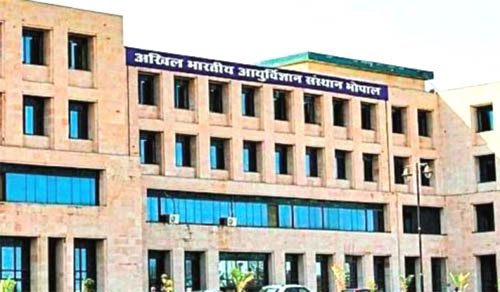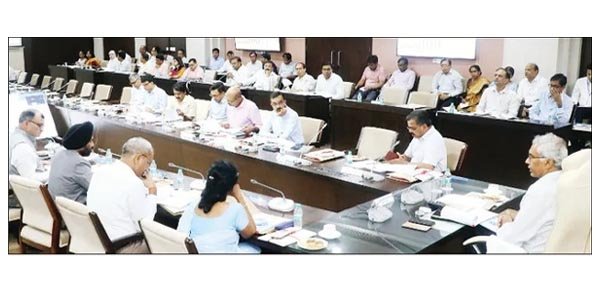Bhopal: In an effort to strengthen community healthcare services, the Bhopal Health Department, in collaboration with AIIMS Bhopal, conducted a comprehensive training program focusing on Ear, Nose, and Throat (ENT), Ophthalmology, and Oral Health Care services. The program aimed to equip healthcare professionals with the necessary knowledge and skills for the prompt identification and treatment of various diseases, thus improving healthcare accessibility and quality within communities.
Dr. Prabhakar Tiwari, Chief Medical and Health Officer (CMHO) of Bhopal, emphasized the primary objective of the training to swiftly identify, manage, and treat diseases related to the nose, ears, throat, eyes, and oral health at the community level. He highlighted the collaboration between the Health Department of Bhopal and Ayushman Arogya Mandirs in providing free testing and treatment facilities for ENT, ophthalmologic, and oral health-related conditions, ensuring equal access to healthcare services for all.
The initiative aims to promote preventive healthcare measures and ensure timely intervention for improved health outcomes. By offering free testing and treatment services at Ayushman Arogya Mandirs, access to essential healthcare services will be enhanced, especially for marginalized communities, ultimately contributing to improved overall health and well-being.
Over the two-day training session, medical specialists from AIIMS provided comprehensive insights into the symptoms, diagnosis, and treatment of various conditions in ENT, ophthalmology, and oral health. Healthcare workers were educated on the importance of regular eye examinations and advised to follow the 20-20-20 rule for eye care to reduce eye strain and promote ocular health.
The training extensively covered early signs of eye diseases, clinical features, management strategies, and referrals, while also emphasizing healthy habits and proper nutrition for optimal eye health. Participants were briefed on the process of eye donation and dispelled prevalent myths and misconceptions surrounding it.
Furthermore, the importance of regular oral examinations and oral hygiene practices to prevent diseases, including oral cancer, was emphasized. Participants were encouraged to undergo thorough oral check-ups monthly and instructed on self-examination techniques to detect abnormalities early. Timely medical advice upon detecting irregularities was stressed for prompt intervention and treatment.
Regarding ear care, specialists cautioned against using items like hairpins or toothpicks for ear cleaning, as they could damage delicate ear structures. Participants were also warned against the indiscriminate use of ear drops without medical advice, with the training covering common ear conditions such as sinusitis, tonsillitis, and nasal bleeding, providing insights into their management and treatment.











